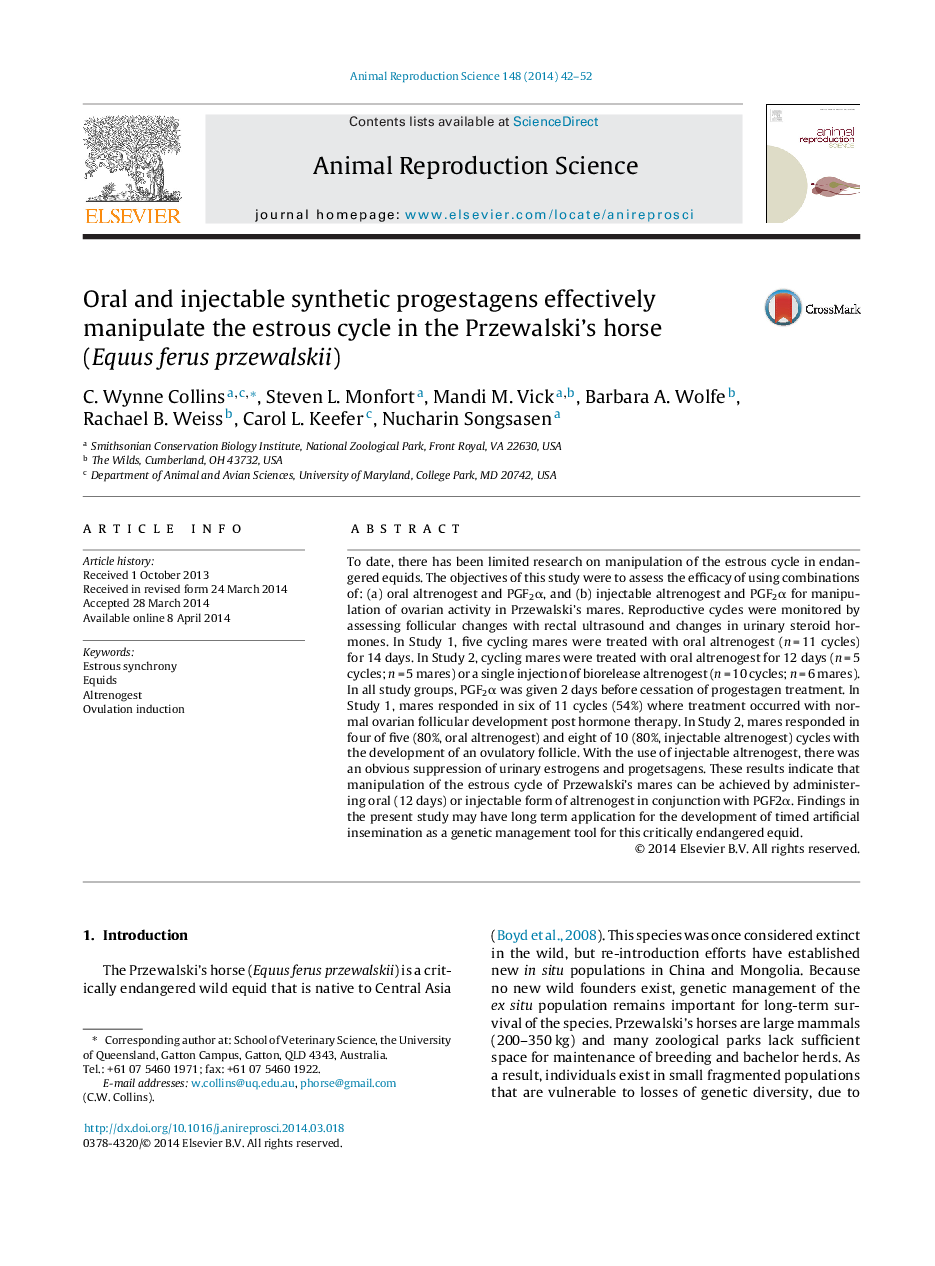| Article ID | Journal | Published Year | Pages | File Type |
|---|---|---|---|---|
| 2072843 | Animal Reproduction Science | 2014 | 11 Pages |
To date, there has been limited research on manipulation of the estrous cycle in endangered equids. The objectives of this study were to assess the efficacy of using combinations of: (a) oral altrenogest and PGF2α, and (b) injectable altrenogest and PGF2α for manipulation of ovarian activity in Przewalski's mares. Reproductive cycles were monitored by assessing follicular changes with rectal ultrasound and changes in urinary steroid hormones. In Study 1, five cycling mares were treated with oral altrenogest (n = 11 cycles) for 14 days. In Study 2, cycling mares were treated with oral altrenogest for 12 days (n = 5 cycles; n = 5 mares) or a single injection of biorelease altrenogest (n = 10 cycles; n = 6 mares). In all study groups, PGF2α was given 2 days before cessation of progestagen treatment. In Study 1, mares responded in six of 11 cycles (54%) where treatment occurred with normal ovarian follicular development post hormone therapy. In Study 2, mares responded in four of five (80%, oral altrenogest) and eight of 10 (80%, injectable altrenogest) cycles with the development of an ovulatory follicle. With the use of injectable altrenogest, there was an obvious suppression of urinary estrogens and progetsagens. These results indicate that manipulation of the estrous cycle of Przewalski's mares can be achieved by administering oral (12 days) or injectable form of altrenogest in conjunction with PGF2α. Findings in the present study may have long term application for the development of timed artificial insemination as a genetic management tool for this critically endangered equid.
